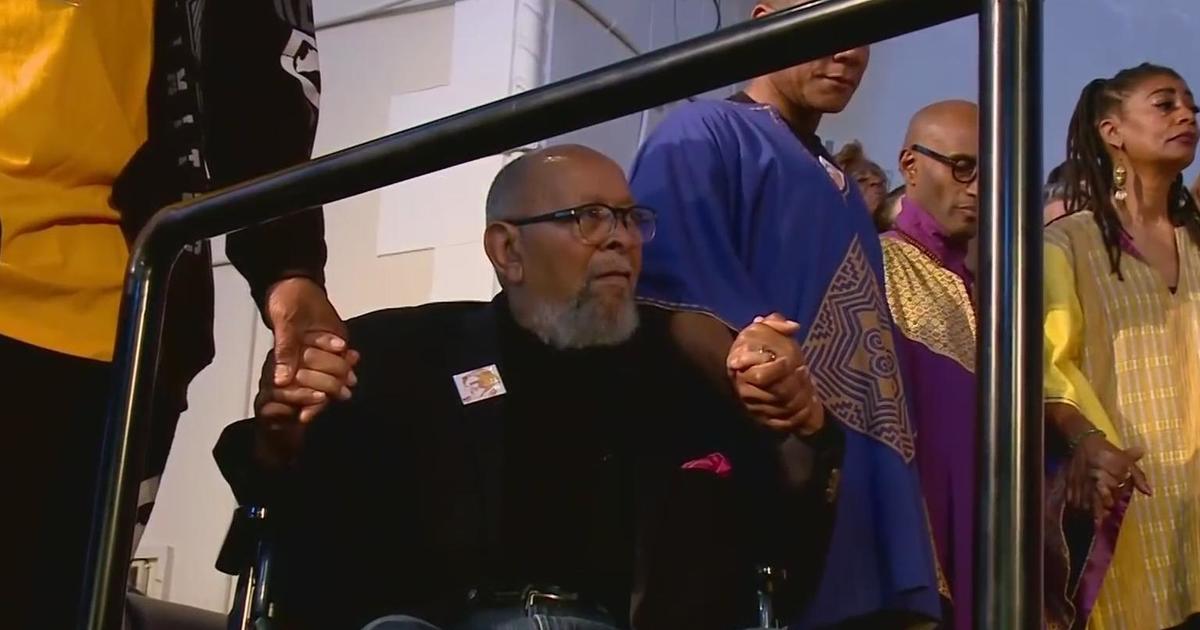Supermajority Holds Promise, Peril For California Democrats
SACRAMENTO (CBS / AP) -- With supermajorities in both houses of the state Legislature, Democrats have a historic opportunity to push their agenda on issues such as tax reform, workers' rights and changing the initiative process.
They could reach too far, though, if they can't restrain the impulses of their most liberal members, leading to actions that will turn off middle-of-the-road voters. One of the key political dramas of the coming year will be how legislative leaders and Democratic Gov. Jerry Brown walk that line.
"We all recognize that we have to use this new power wisely, and we can't overplay it," Senate President Pro Tem Darrell Steinberg said in an interview Thursday. "On the other hand ... we also don't want to underutilize the chance we have to continue to help California grow and thrive."
Many Democrats are anticipating what the party can do now that they no longer need Republican votes.
Steinberg suggested changing the state's tax structure, restoring money to social services and modifying the ballot initiative process by requiring proponents to work with legislators to fine-tune their proposals and ensuring that initiatives expire after a certain number of years.
He also said Democrats could use their two-thirds majorities to place a measure on the ballot seeking to legalize same-sex marriage by overturning Proposition 8 if the U.S. Supreme Court eventually upholds California's constitutional ban.
Steinberg cited as an example of potential over-reaching Democratic state Sen. Ted Lieu's support for an effort to triple the state's vehicle license fee.
Assemblyman Jim Nielsen, R-Gerber, said he does not trust Democrats to keep themselves in check.
"I think some of these folks are genetically incapable of fiscal prudence. The spending will outgrow whatever surpluses we have," said Nielsen, who has been the Assembly Republicans' point person on the budget.
The legislative supermajority will let Democrats unilaterally raise taxes, if they choose, for the first time since California voters passed Proposition 13 in 1978. The landmark initiative increased the legislative vote threshold to pass tax increases to two-thirds.
The central provision of Proposition 13, which rolled back property taxes and strictly limited their annual increases, also could come under review by Democrats. Some Democrats say they favor placing a measure on the ballot that would ask voters if they want to raise the limit on annual property tax increases for corporations, while leaving the limit in place for homeowners.
Assemblyman Tom Ammiano, D-San Francisco, said the supermajority breathes new life into his proposal to tweak Proposition 13 to prevent corporations from avoiding tax increases when properties change hands.
The two-thirds majorities also give Democrats the ability to override gubernatorial vetoes, such as the one earlier this year on an Ammiano bill that would have provided overtime pay, meal breaks and other labor protections to caregivers, nannies and house cleaners.
Yet there have been no overrides since 1979, during Brown's first tenure as governor, and lawmakers risk undermining a governor of their own party if they use it.
"It's kind of like Christmas," Ammiano said of the supermajority. "The gifts under the tree look really nice and you're happy. But when you open up the gifts, you have to be pretty judicious."
The Assembly will need to follow the governor's guidance and not go too far, said Speaker John Perez, D-Los Angeles.
"We need to be very responsible with the limited resources that the state has, and we need to be thoughtful about making decisions that create the opportunities to grow jobs and get people back to work in the state," Perez said Thursday in a telephone interview.
There is no interest in raising taxes beyond those just approved by voters, he said.
Voters passed Brown's Proposition 30, which increases the state sales tax for four years and income taxes on those making more than $250,000 a year for seven years. Voters also approved a separate initiative that will send $1 billion more per year to the general fund by closing a corporate tax loophole.
Perez also noted that Democrats will lack their two-thirds majorities for much of the next year as two incumbent senators leave for Congress and Assembly members run for their vacant seats and for the Los Angeles city council.
Even if Democrats want to restrain themselves, they will face pressure from public employee unions. Union may seek to roll back some of the recently enacted pension changes and get cost-of-living increases for employees who have gone without raises during the state's budget crisis.
(Copyright 2012 by CBS San Francisco. All Rights Reserved. This material may not be published, broadcast, rewritten, or redistributed.)



